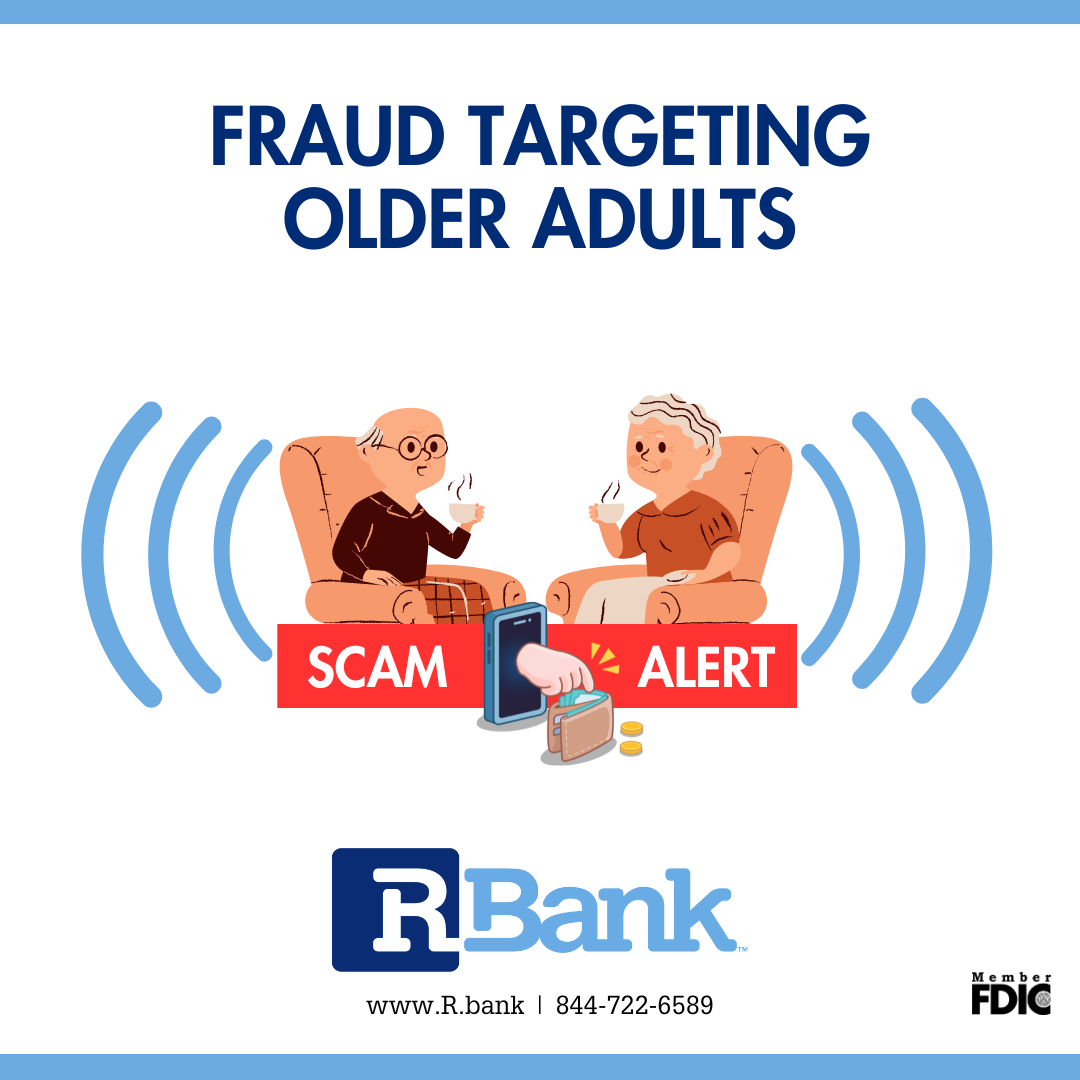03/12/2024: Watch Out for Scams Targeting Older Adults
 Scammers have built plenty of different scam schemes specifically for older adults. Scammers like to target older adults because of retirement savings, benefits, or because they may live alone.
Scammers have built plenty of different scam schemes specifically for older adults. Scammers like to target older adults because of retirement savings, benefits, or because they may live alone.
Popular Scams Targeting Elderly
- Health Insurance Scams: Once someone reaches 65 years of age, they qualify for Medicare. This makes them a target for scammers running insurance scams.
- Telemarketing Scams: Scammers may offer free trials, investments, prizes, or warranties to trick you. Never give personal information over the phone to anyone.
- Internet Scams: Scammers deceive people in internet scams by using fake virus alerts or real viruses that demand payment for removal. Don’t fall for these tricks and never pay the scammer.
- Charity Scams: Charity scams are successful and dangerous because they depend on the goodwill of others. It’s hard to turn down donating to what seems like a worthy cause. However, the scammers are counting on this and will steal your money for themselves.
- Tech Support Scams: Scammers will call offering support for your devices by offering to clear computer viruses or install security. You might get a discount for being older. However, they could also install harmful software on your devices. This software could make you pay more money.
- IRS Scams: The most common way that this scam is ran is that the scammer pretends to be an IRS agent. They often use scary tactics like yelling, threats, or pressure you to pay immediately or face jail time.
Signs of Elder Fraud
It’s important to look out for the warning signs of elder financial abuse. Below are some warning signs you can look out for.
- Unusual Financial Activity: Such as large withdrawals taken from savings, checks made out to unknown people, new credit card debt, unusual spending through gift cards or wire transfers.
- Sudden Changes to Financial Documents or Accounts: Older adults often seek help to manage their money and affairs. This leaves them vulnerable to scammers who don’t have their best interests at heart.
- A New Friend Making Important Decisions: A Scammer might act like a friend to an older adult. They could then isolate the older adult from their family and friends. The scammer’s goal is to take the older adult’s money. They will often start influencing your loved one to make odd financial decisions they wouldn’t normally make.
What should you do if someone has scammed you?
Scams happen to everybody, and they become more sophisticated every day. If someone targets you, there is no reason to be embarrassed. Instead, you should report the fraud to different resources that can help you.
You can report fraud to the Federal Trade Commission (FTC), https://reportfraud.ftc.gov/#/.



